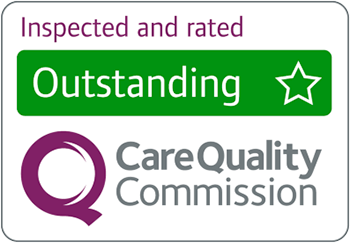Most people who need care are making the biggest decision of the rest of their life. Selling your home to move into residential care is usually irreversible.
Before you make that life-changing decision, we suggest you consider three questions:
- What’s important in your life? What do you love doing and what gives you joy?
- How can you avoid losing any of these important things, without being a burden on your family? And how can you do this with the minimum amount of disruption, upheaval and stress?
- What do the different options cost? Can you afford them?
How much does home care cost?
If you need help or care, at some point it is likely that you will have to use a professional carer. You might just need a little bit of help, say a couple of hours a week while a family carer has a break. Or you might require more – a few hours or more a day. Most people want to stay at home, rather than having to give up beloved things in their life such as their pets, garden and home, and move into residential care.
Home Care can generally be divided into three types of care, depending on how much care or help you need:
- Hourly visiting care, when a carer comes to your home to help you, for as little as an hour or so a week to several hours a day.
- Live-in care, when you might need a carer full time, and you have a carer who actually lives with you, so you get the care you want whenever you want, and the flexibility to vary your routine whenever you want. Live-in care itself falls into two types: introduced and managed.
- Introduced is for when you want or need a carer around full-time but there aren’t intensive care needs – the carer doesn’t need to help with hoisting for example. This care is not regulated, the carers are self-employed and Christies Care acts as an introduction agency. The carer quality is still high, like all of our carers, we select only the top 1% of all applicants, put them through our Princess Royal Award-winning training (which in turn has a 10% failure rate) and make sure they will be compatible.
- Fully managed is for when you want Christies Care to take full responsibility for the care, or when the care needed is enough so that a carer must be managed by someone else (for example, administering medication, help with hoisting or complex moving, personal care). The carers’ performance is managed by Christies Care, to CQC Outstanding standards.
- Introduced is for when you want or need a carer around full-time but there aren’t intensive care needs – the carer doesn’t need to help with hoisting for example. This care is not regulated, the carers are self-employed and Christies Care acts as an introduction agency. The carer quality is still high, like all of our carers, we select only the top 1% of all applicants, put them through our Princess Royal Award-winning training (which in turn has a 10% failure rate) and make sure they will be compatible.
- The third type is when someone needs full-time care but doesn’t want someone to live-in with them. Therefore this person has hourly visiting carers (from the same branch of Christies Care as described in section 1 above) coming, full-time. Maybe three eight-hour shifts, or two twelve-hour shifts.
| Hourly visiting care (CQC regulated, Outstanding) | Introduced live-in care (not regulated but with carefully selected and trained carers) | Fully managed, CQC Regulated (and Outstanding) live-in care | 24 hour, hourly visiting care (CQC regulated, Outstanding) |
| £ 30 per hour weekdays, £33 per hour weekends and bank holidays | Between £1,100 and £1,390 per week, depending on the work needed. We can give you an exact quote over the phone. | Between £1,569 and £2,079 per week, depending on the work needed. We can give you an exact quote over the phone. | At £30 an hour, 24 hours a day, seven days a week; £5040 a week. Having two live-in carers at £1,600 a week each adds up to a good deal cheaper. |
What goes into this price?
Our focus is on giving extremely high quality care, so the costs of care at home come from this. We split the costs of providing excellent home care between the direct cost of the carers’ wages and the other costs of delivering an outstanding service.
Carer wages. Christies Care always pays its carers well. Why? Because they deserve it. Being a carer is very hard work and we only select the best people, so it’s right they earn a decent wage. A good wage also attracts good applicants, and helps us keep the best carers. The carer wages make up the majority of all carer fees, with the proportion increasing as the care hours grow.
The costs of delivering an outstanding service. To run a great care agency, we need to have the right people in the office. We pay our people a good wage, for the same reason we pay carers a good wage – they deserve to be fairly rewarded for their work, it attracts good applicants and helps us retain the best people.
We also spend a lot of money on our recruitment, training and care management teams, so we get the best carers and we always have enough. We give them the best training in the country, so they always know how to be excellent carers. Finally, our investment in management means that everything runs smoothly.
Over thirty years, we’ve seen repeatedly how investment in our office team pays a dividend in terms of quality of care for our clients.
How much is overnight care?
Often people want overnight care, and depending on what is wanted, there are different types of overnight care. If you need someone overnight to be awake and alert and actively take care of you through the night, this is a waking night, which costs our usual hourly rate of £30 an hour.
If you want somebody to be there to help you to the toilet, or for reassurance (maybe you are prone to falls and want someone there, just in case), your carer doesn’t need to be awake all night, they just need to be able to be woken to help you. In this case someone can come for a sleeping night. They’ll be able to sleep but will be there to help, whenever you want or need them. This is a bit cheaper, at £27.99 an hour.
In comparison, a live-in carer, who is there all the time, costs around £1,650 a week.
Is home care cheaper than a care home?
Before you start comparing care home and home care prices, a lot depends on your answers to the questions at the top of the page. What makes you most happy in life, and is it possible to keep that happiness in the last years of life?
For most people, the answer is to have home care rather than give up and go into a care or nursing home. Moving into residential care, you are likely to lose many of the things that bring you happiness, however nice the care home or nursing home is, and there is also the huge stress of moving house to go and live in an institution.
Is a care or nursing home cheaper than home care though?
Care and nursing home fees vary a huge amount. In a recent secret shopper exercise we found that in May 2023, residential care cost between £850 and £2,500 a week, depending on where you live, what levels of comfort you expect (shared bathroom or en-suite) and how much care you need.
You can find a care or nursing home that is more expensive than having home care. You can find a care or nursing home that is cheaper than having home care. The chief decision you have to make is how much of the pleasure in life do you want to give up by moving into a care or nursing home.
Unfortunately, you are likely to have to pay for care yourself. The local council has a duty to give you an assessment and to help you draw up a care plan, but you have to be below an economic threshold (with less than £23,500 in savings, pension or other capital) and quite ill (local authorities have moved the bar at which they pay for care higher and higher in the past decade). Our Paying for Care page has more information on how you can pay for the great home care that you deserve.
If you want to find out more about home care, to discuss what might suit you and fit your specific wants and needs, please contact Christies Care on the numbers below.











